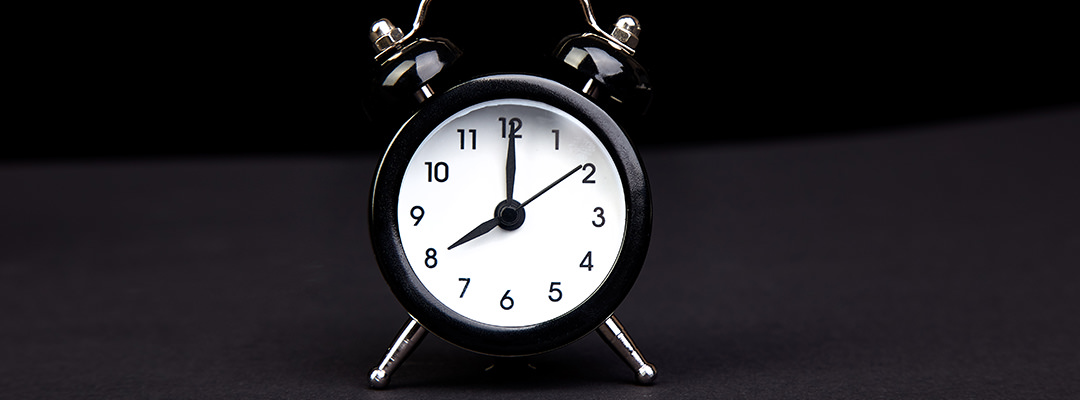Don’t get us wrong — alarm clocks are a game-changing invention. They allow us to schedule our day, get to work on time, meet our friends for breakfast without starting an international incident, and even indulge in staying up a bit later because we’ll know we’ll be okay. But here’s a major, slightly scary, universal truth: if you need an alarm clock, you’re not getting enough sleep.
The truth is, we use alarm clocks because we’re not giving our bodies enough to run off of, and sometimes our bodies and our minds disagree on what is best for us (getting lots of sleep so we can function at our best without getting sick? Good. Showing up to work on time so that we can pay our rent? Also good). So how can we make sure we wake up on time without sacrificing our sleep health? Is there a way we can get out of bed without needing to rely on our electronic devices? Let’s explore some of the ways to wake up naturally without an alarm clock.
Why Do We Use Alarm Clocks?
Back when we were a predominantly agricultural society, we would wake up when the sun rose, lulled into the world by the gentle serenade of a crowing rooster or our mums hollering at us to drink the coffee before it got cold. Then we would go out and do our planting and our tending and our harvesting, coming in to warm up by the fire before going to bed sometime around nightfall. The earth would turn and the sun would rise and we’d do it all over again.
Things changed.
Now, people’s lives are run by calendar dates and timepieces more than the natural rhythms of the land. We stay up late stressing out over all the things we need to get done, and then we stay up even later scrolling through Pinterest or chatting with our friends over WhatsApp, and then we get up while it’s still dark to get to work or school on time. It’s a flawed cacophony of unhealthy rhythms — and our bodies know this. So we use alarm clocks to overcome our bodies’ natural instinct, which is to take care of us.
Is Relying On Alarm Clocks Unhealthy?
Alarm clocks put us into a consistent rhythm, which isn’t necessarily a bad thing. Waking up at the same time each morning to start our day can be great for teaching our bodies circular patterns, which — in theory — leads to better sleep.
The problems begin when we’re not following those patterns at nighttime. When we stay up too late before we fall asleep we cut our sleep time short, and when we stay up late only on certain days or before particularly stressful events we’re disrupting healthy sleep habits for our bodies.
For example, if you stay up an extra three hours on Friday and Saturday night, and then need to wake up early again Monday morning, you’re basically force-feeding yourself a three-hour jet lag. Every. Single. Week. Alarm clocks serve a great practical purpose for making sure we get where we need to be in the mornings, but we can do a lot better by teaching our bodies how to develop these healthy sleep cycle habits on their own.
Here’s how.
4 Ways To Wake Up Without An Alarm Clock
Minimize Nighttime Stress
We’ve said it before and we’ll say it many more times to come: dial down before hitting the sack. Your healthy sleep regime begins before you even get into bed. If you can, try to set aside your daytime worries until morning, shut down your work email, and, for the love of all that is quilted, turn off your phone.
Not only are our phones compact ticking anxiety bombs, but the blue light of the screen on our electronic devices imitates natural daylight and tricks our brains into thinking it’s earlier than it is. This makes it harder to shut down for the night and negatively impacts the quality of our sleep. And, as we saw above, getting good sleep is essential to waking up on time feeling well-rested.
Instead of haunting your text messages and scrolling through the ’gram at bedtime, try reading, listening to relaxing music, or doing something low-key creative.
Develop Sleep Patterns
The best way to keep your body waking up at a consistent time is to develop reliable rhythms before you go to bed. Try to wind down at the same time every night — about half an hour before you’re ready to actually go to sleep. This is not Facebook scrolling time, but rather a period for you to relax with a good book, some journaling, or a soothing meditation. Getting into these habits shows your body that it’s time to begin shedding off the day in preparation for a good night’s sleep.
Then, see if you can turn off the lights and get into bed at the same time every night — that’s every night, including weekends. Our bodies are pretty smart, and it won’t take long for them to recognize these external signals that you’re feeding it as signs that it’s time for sleep. This way you’ll be sure you’re getting enough sleep at night to wake up reliably and well-rested.
Wake With the Sun
Human beings are biologically wired to follow the rhythms of the sun. This is great news for those of us who are early risers, but it makes life a little trickier for the night owls.
If you’re trying to rise in the mornings without relying on your alarm clock, keep your curtains open (or use thin ones if you’re worried about nosy neighbors!) so that the morning light fills your sleeping space. Even if you’re not conscious at the time, the daylight will trigger instincts in your brain that tell you it’s time to begin your day. Plus, the gradual strengthening of the sun will wake you a lot more gently than a blaring alarm clock. Win-win.
Alternatively, if you live in a space that doesn’t get much daylight or if you need to be up a little earlier than the sun, you can try a sunrise alarm clock. These are night lights (morning lights?) that imitate the tone and graduating intensity of the sun. They start dim and slowly get brighter over the course of about half an hour, allowing you a smooth, gentle morning rise.
Start Safe
Nothing is going to lull you into sleep less than freaking out about whether or not you’re going to wake up for work on time. When you’re starting out making the transition from alarm-reliant to alarm-independent, try setting your alarm for fifteen or twenty minutes later than you would normally wake up. That way, if you snooze through your usual wake-up time, you’ll still be okay and manage to keep your day on track before it begins. Knowing that this safety net is in place will make a big difference in how relaxed you feel as you’re falling asleep, which means a better sleep and a calmer morning for you.
Alarm clocks are undeniably an essential part of our day-to-day living, and allow us to operate on a minute-to-minute basis that we wouldn’t have been able to even a few generations ago. But it’s also undeniable that they’re pretty rough on our bodies over time, especially when we’re relying on them to manage our sleep patterns instead of relying on our own instincts.
Rather than fighting those instincts — which, as we saw, are doing their best to protect us — try working with them to create reliable, consistent habits in your evenings and mornings that ensure you get enough sleep, you sleep well, and you’re rested and strong enough each morning to face whatever the day has to offer.





